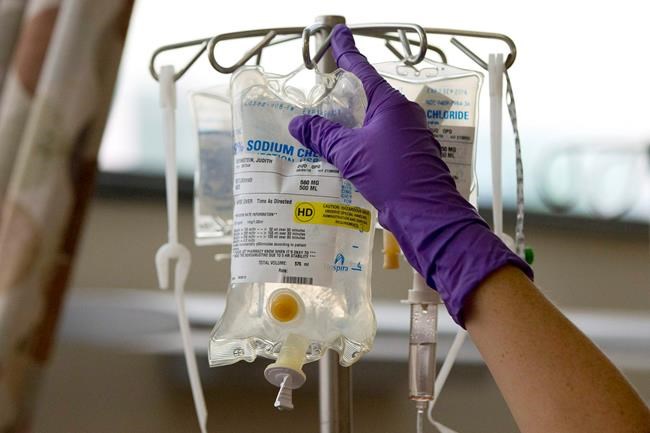Province looks at critical errors in care
Advertisement
Read this article for free:
or
Already have an account? Log in here »
To continue reading, please subscribe:
Monthly Digital Subscription
$1 per week for 24 weeks*
- Enjoy unlimited reading on winnipegfreepress.com
- Read the E-Edition, our digital replica newspaper
- Access News Break, our award-winning app
- Play interactive puzzles
*Billed as $4.00 plus GST every four weeks. After 24 weeks, price increases to the regular rate of $19.00 plus GST every four weeks. Offer available to new and qualified returning subscribers only. Cancel any time.
Monthly Digital Subscription
$4.75/week*
- Enjoy unlimited reading on winnipegfreepress.com
- Read the E-Edition, our digital replica newspaper
- Access News Break, our award-winning app
- Play interactive puzzles
*Billed as $19 plus GST every four weeks. Cancel any time.
To continue reading, please subscribe:
Add Free Press access to your Brandon Sun subscription for only an additional
$1 for the first 4 weeks*
*Your next subscription payment will increase by $1.00 and you will be charged $16.99 plus GST for four weeks. After four weeks, your payment will increase to $23.99 plus GST every four weeks.
Read unlimited articles for free today:
or
Already have an account? Log in here »
Hey there, time traveller!
This article was published 22/09/2019 (2221 days ago), so information in it may no longer be current.
Patients died last year from ailments as simple as a diabetic foot infection and undiagnosed sepsis, and from an accidental transfer to the regular ward instead of an acute cardiac care unit.
Manitoba’s quarterly critical incident report lists 29 times “unintended” actions in health care led to serious, undesired complications in April, May and June 2018.
Three patients suffered fractured hips in that time period, one because they were pushed by a fellow personal care home resident and fell.

In that case, another patient with dementia was wandering in the hallway. They began yelling, and kicked down someone’s door. That patient pushed the patient with dementia, who sustained multiple fractures.
After four years of supposedly clean pap smears, one patient was diagnosed with cervical cancer. Doctors went back over all four pap smears and found cancer should have been detected in all of them.
A surgical patient having an IUD removed flatlined after being given 25 per cent more than the maximum recommended dose of lidocaine for local freezing.
A patient already in hospital with cardiac issues was given 10 times the required dose of norepinephrene, causing them to pass out.
A pediatric patient was admitted to hospital for low blood sugar and seizures. The patient was found to have low serum sodium levels due to a diuretic. The diuretic was stopped. Upon being released from the hospital, the patient was told to resume the diuretic. Three weeks later, the patient was admitted again with gastroenteritis. The serum sodium level was dangerously low. The patient was admitted to the intensive care unit to treat hypotension.
The neonatal transport team had already picked up one sick infant when a call came in that twins needed care as well. Since no other team was available, they picked them up. But with one team and three infants, one of the twins got out of its breathing tube and had a cardiac arrest. The infant had to be sent to the NICU.
Another infant was given a paralytic but no painkillers as doctors performed two invasive procedures.
Since 2006, Manitoba has had no-blame critical incident reporting to encourage honesty and openness.
Reporting of such an incident is followed by an investigation to determine what happened and what changes should be made to reduce the chance of such an incident happening again.
tvanderhart@freepress.mb.ca
Twitter: @tessavanderhart


